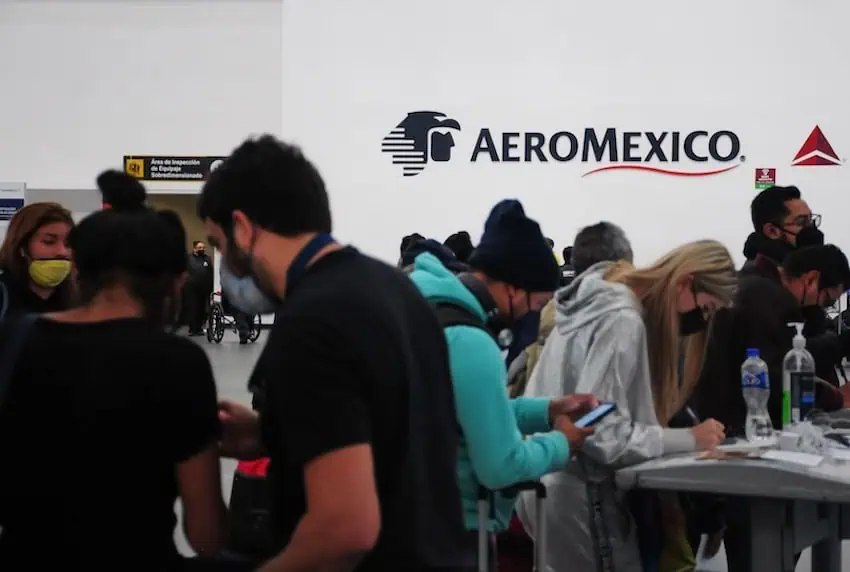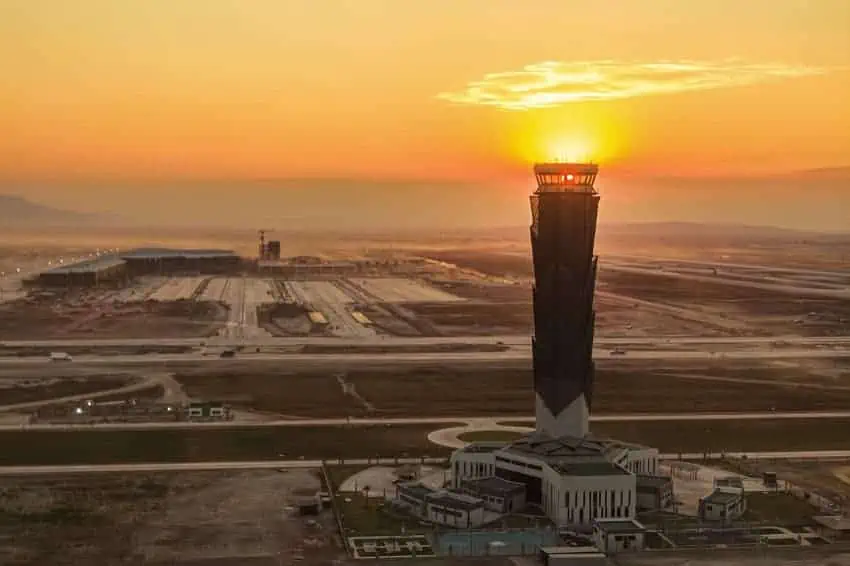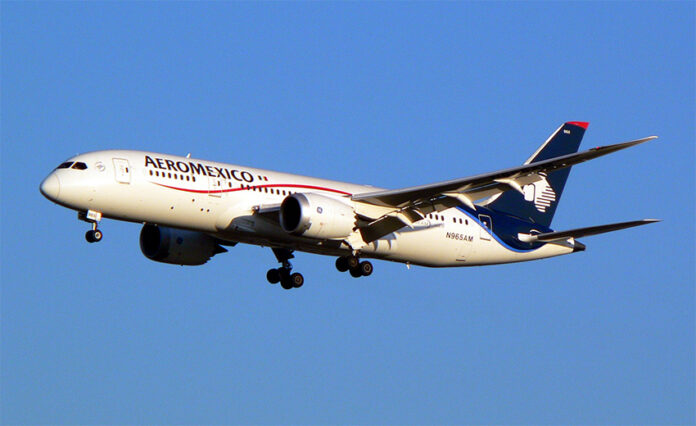The U.S. government has imposed new restrictions on flights from Mexico and has threatened to end a longstanding partnership between Delta Air Lines and Aeroméxico, Mexico’s flagship carrier.
The U.S. actions, announced on Saturday, are in response to Mexico’s decision, formalized in 2023, to force airlines out of the Benito Juárez International Airport in Mexico City to the newer Felipe Ángeles International Airport (AIFA) nearly 50 kilometers away in México state.

Mexican President Claudia Sheinbaum said on Monday that her government has not been formally notified and dismissed the notion that Mexico could be sanctioned.
“There’s no reason to impose any sanctions related to this matter,” she said, adding that security and efficiency were the basis for the move regarding the airports. “[The older airport] was very saturated … and had reached operational risk levels.”
Earlier, Mexico’s Transportation Ministry defended the forced relocation in a social media post, citing statistics to demonstrate the improvements that resulted from the move.
In a statement, U.S. Transportation Secretary Sean Duffy said the forced relocation violated a bilateral trade agreement by cutting flight slots and mandating that cargo carriers relocate operations, giving domestic Mexican airlines an unfair advantage.
“Mexico has not been in compliance with the bilateral agreement since 2022 when it abruptly rescinded slots and then forced U.S. all-cargo carriers to relocate operations,” he said, adding that the decision “disrupted the market, and left American businesses holding the bag for millions in increased costs.”
Duffy said the U.S. Department of Transportation (DOT) could also reject flight requests from Mexico if its government fails to address U.S. concerns over decisions made in 2022 and 2023.
The statement also said DOT is considering withdrawing antitrust immunity from Delta’s joint venture with Aeroméxico to address competitive issues.
The Cargo Airline Association (CAA), which represents major U.S. cargo carriers, applauded the U.S. government’s announcement in a July 19 statement.
“Today’s announcement sends a clear and necessary message: the United States will not tolerate unfair, anti-competitive behavior that is counter to the tenants of the U.S. Open Skies framework and harms American businesses,” it said.
Forced relocation of cargo flights
Mexico’s then-President Andrés Manuel López Obrador published a decree on Feb. 2, 2023, that enacted the suspension of cargo operations at the Benito Juárez International Airport (MEX), giving air freight carriers 108 business days to relocate to the AIFA.
The Mexican government said the decision was to allow for construction to alleviate congestion at MEX, but DOT claims the construction has yet to materialize.
In its statement, the CAA criticized Mexico’s unilateral decision, saying the move “not only disrupted critical air cargo operations and set a dangerous precedent for how all-cargo carriers may be treated in global markets, it also created uncertainty about how potential safety emergencies could be handled.”

Reuters reported that the AIFA — inaugurated in March 2022 — is already at full capacity for cargo handling and will have to be expanded. Passenger flights are inconvenienced by the fact that transportation to and from Mexico City remains spotty.
The U.S. Transportation Department actions
The so-called “America First actions” are intended “to combat Mexico’s blatant disregard of the 2015 U.S.-Mexico Air Transport Agreement and its ongoing anti-competitive behavior.”
The actions are:
- Mexican airlines must file schedules with DOT for all U.S. operations.
- Any large passenger or cargo aircraft charter flights to or from the United States operated by Mexican airlines must apply for DOT approval.
- A supplemental Show Cause Order has been formulated that would withdraw the Delta/Aeroméxico joint venture’s antitrust immunity.
DOT says withdrawal of the Delta/Aeroméxico antitrust immunity is, in essence, a corrective action to address competition issues in the market.
Delta responded by saying that if DOT withdraws approval, it “would cause significant harm to consumers traveling between the U.S. and Mexico, as well as U.S. jobs, communities, and transborder competition.”
Mexico is the most popular international destination for U.S. airline travelers with more than 40 million passengers flying there last year.
The news agency Reuters, citing an airline industry analyst, said the broader U.S. goal could be to establish a strong negotiating position ahead of a review of the United States-Mexico-Canada trade agreement (USMCA).
“They are using this as a springboard to gain leverage, just as they did with tariffs and immigration,” Fernando Gómez told Reuters. “USMCA is their ultimate goal.”
With reports from El Universal, El Financiero, The Associated Press and Reuters
